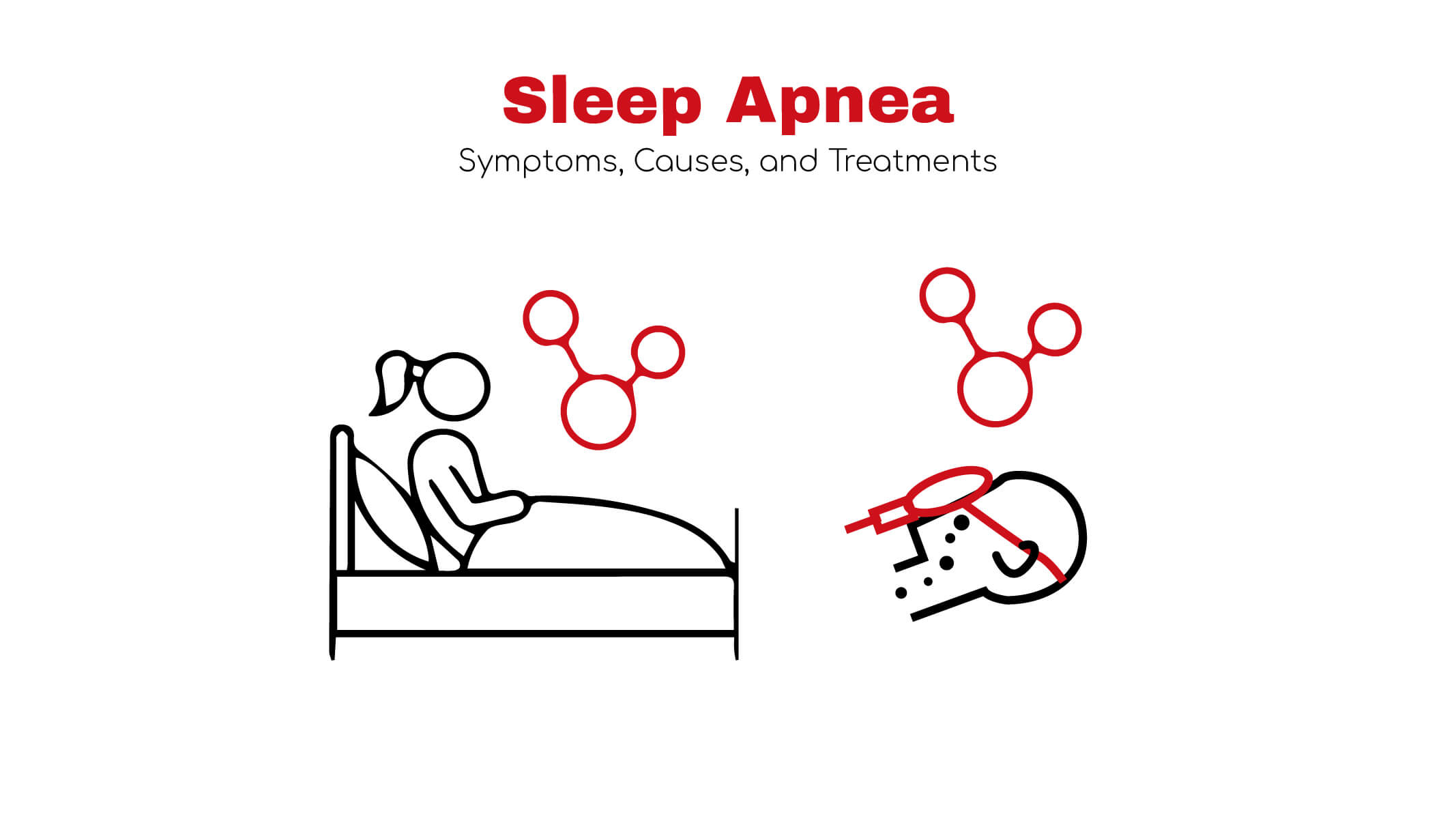Sleep apnea is one of the most likely sleep disorders in which breathing frequently stops and then begins again. People who tend to snore loudly and experience tiredness even after having healthy Sleep Apnea hours of sleep might have sleep apnea. This sleep disorder includes blockage of oxygen transferring to the blood.
Types of Sleep Apnea
1. Contrary Sleep Apnea (OSA)
This type of sleep apnea is the most usual form that comes to effect when the neck muscles are in a comfortable position.
Contrary Causes
It causes when the muscles in the backside of the throat are comforted. When an individual tries to take oxygen, the airways shrink, causing difficulty breathing enough oxygen and dropping the oxygen level in the human body. The brain then signals breathlessness and tries to awake an individual from sleep, this whole procedure takes a short time, and the individual often forgets about it.
Risk factors
- Obesity: Being overweight is one of the leading factors of having this sleep disorder, as the fat can cause abstraction in an individual’s breathing.
- Neck outline: Individuals with slim necks may have shrinking airways.
- Shrinking airways: If a person has narrowed airways, they might have obstructive sleep disorder.
- Male population: The risk of having this sleep disorder in men has a relatively high ratio than in women. Women who are overweight are at higher risk of having sleep apnea.
- Family history and smoking habits: If any member in the family has been diagnosed with this sleep disorder, there is a greater risk of forwarding the illness to the other family members. Similarly, people with a smoking habit are more likely to have sleep apnea as smoking causes an increase in the percentage of inflammation and fluid in the upper airways.
- Medical circumstance: Patients suffering from medical conditions such as high blood pressure, diabetes, heart failure, hormonal imbalance, and asthma lung disease are at greater risk of having sleep apnea.
- Symptoms: The indications for having OSA include snoring, daytime sleepiness, dry mouth or sour throat when an individual awakes, and headaches.
2. Primary Sleep Apnea (PSA)
This happens when the brain cannot transfer clear signals to the department that is in charge of controlling the human body’s breathing.
Primary Causes
PSA occurs when the brain fails the ability to transfer signals to the inhaling and exhaling muscles. This results in stopped breathing for a limited time. It can be possible that the individual might awake because of shortness of breath and encounter difficulty in going back to sleep.
Primary Risk factors
- Aged: Older aged population tends to experience central this sleep disorder.
- Male: Sleep apnea is more common in men than in women.
- Cardiac illness: If an individual has experienced a cardiac disorder, then the risk of having central sleep apnea increases.
- Symptoms: The indications include pathetic performance in routine tasks at the workplace, abnormal sleeping position, and often feeling sleepy even completing the proper sleep.
3. Problematic Sleep Apnea
This disorder is the combination of both aforementioned types of apnea that occurs when an individual suffers from both sleep apnea like obstructive and central sleep apnea. This apnea is referred to the treatment-emergent primary sleep apnea.
Who is most likely to encounter sleep apnea?
This sleep disorder happens in almost 25% of men and about 10% of women. This illness can be diagnosed in all age groups, consisting of infant children, aged people having 50 years of age or above, and those who are obese.
When to visit a doctor?
If an individual faces increased volume snoring as a significant symptom of this sleep disorder, in that case, they must visit the doctor to share the possible signs and get proper guidance to avoid future recurrence.
How to diagnose?
If the physician highlights any related indications to sleep apnea, the consultant might suggest an insomnia examination to analyze the patient’s sleep. This test would be conducted with the invigilation of the sleep specialist.
Complications
- Daytime sleepiness: It happens when the individual cannot sleep properly at night due to repeated waking, and it can lead to daytime fatigue and drowsiness. This sleep disorder causes a lack of concentration and difficulty in performing activities. People with this disorder are commonly moody, depressed, or quick-tempered.
- Increased blood pressure: In the case of this sleep disorder, the level of oxygen flow drops and causes a high blood pressure level. It can also boost cardiac illnesses such as heart attack and stroke, normally caused by obstructive sleep apnea.
- Diabetes: Having sleep apnea can cause a rise in insulin resistance in the human body and type 2 diabetes.
- Metabolism disorder: This type of illness includes increased blood levels and a rise in sugar levels, leading to severe heart diseases.
- Difficulty in performing medical treatment and surgeries: Obstructive sleep disorder contains severe complications while having any surgeries due to breathing difficulties.
- Liver illness: Individuals with obstructive sleep apnea are likely to have unusual outcomes of the liver function examination. As the liver is most likely to indicate scarring, a non-alcoholic fatty liver disease.
- Depressed sleep partner: Noisy snoring can disturb the other person sleeping next to the diagnosed person. This normally happens because of obstructive sleep disorder.
Treatments
The treatment options for different forms of sleep apnea may include;
- Changes in an individual’s lifestyle, such as the patient, must maintain an average weight according to a healthy BMI.
- Practice workout for performing tasks actively.
- Take possible therapy to open the airways, such as sleeping continuous positive airway pressure (CPAP).
- Conduct oral treatment to keep the mouth open while sleeping.
- Limit the consumption volumes of alcohol.
- Avoid smoking.
References:
- https://www.mayoclinic.org/diseases-conditions/sleep-apnea/symptoms-causes/syc-20377631 retrieved on March 21, 2022.
- https://my.clevelandclinic.org/health/diseases/8718-sleep-apnea?msclkid=685074bfafe311eca813f98deb34c883# retrieved on March 21, 2022.





